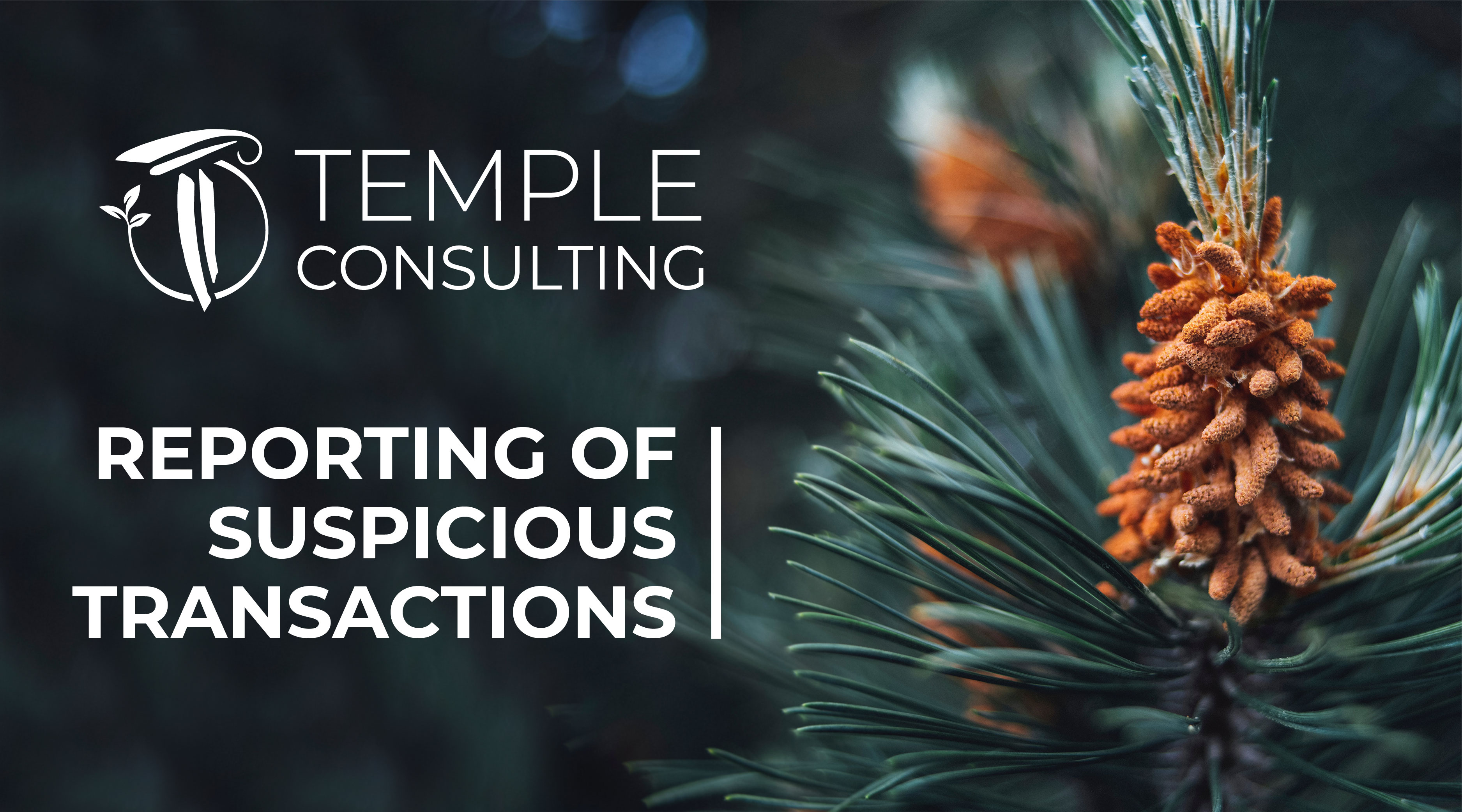Financial institutions in Mauritius are under the statutory obligation to locate and report suspicious transactions (STRs) to the Financial Intelligence Unit (FIU) with the ultimate and overriding objective to counter Money Laundering (ML) and Terrorism Financing (TF) activities.
Whenever a business relationship has been created with a particular client, financial institutions must be able to identify suspicious transactions upon measuring its consistency with the client’s business activities. Potential red flags taken into consideration with regards to the identification of a suspicious transaction include, inter alia, the followings:
- an unusual transaction in the context of the financial institution’s understanding of the business relationship (for example, abnormal size or frequency for that customer or peer group, or a transaction or activity involving an unknown third party);
- funds originating from, or destined for, an unusual location, whether specific to an individual business relationship, or for a generic customer or product type;
- transactions or activity unexpectedly occurring after a period of dormancy;
- unusual patterns of transactions or activity which have no apparent economic or lawful purpose;
- an instruction to effect payments for advisory or consulting activities with no apparent connection to the known activities of the customer or their business;
- the involvement of charitable or political donations or sponsorship; or
- a relevant connection with a country or territory that has significant levels of corruption or provides funding or support for terrorist activities.
Financial institutions must remain conscious that under the FIAMLA, they have an obligation to prevent and detect money laundering and terrorism financing. Where a financial institution is suspicious, or has knowledge of, money laundering or terrorism financing, it should not unquestioningly carry out instructions as issued by the customer. If a financial institution unquestioningly carries out unreasonable instructions in this manner, it may mean that it is failing in its duty to prevent and detect ML/TF.
According to Regulation 28(1) of the FIAML Regulations 2018, where a financial institution identifies any suspicious activity or has reasonable ground to suspect that a transaction is suspicious during a business relationship or occasional transaction, the financial institution should
(a) consider obtaining Enhanced Due Diligence in accordance with Regulation 12 of the FIAML Regulations 2018; and
(b) make an internal disclosure in accordance with the procedures established under Regulation 27 of the FIAML Regulations 2018.
The reporting procedures as above must also apply to prospective customers and transactions that were attempted but that did not take place. The MLRO should then consider the internal disclosure to assess whether an external disclosure need to be made to the FIU.
Internal Disclosures
Where a suspicious activity has been identified, an internal disclosure must be made to the MLRO in accordance with Regulation 28(1) of the FIAML Regulations 2018. It is the responsibility of the MLRO (or if appropriate, the Deputy MLRO) to consider all internal disclosures he/she receives in the light of full access to all relevant documentation.
Failure by the MLRO to diligently consider all relevant material may lead to vital information being overlooked and the suspicious transaction or activity not being externally disclosed to the FIU in accordance with the requirements of the legislation. As a result, the MLRO must document internal disclosures made by employees to record the results of the assessment of each disclosure.
The MLRO should also acknowledge receipt of the internal disclosure and at the same time, provide a reminder of the obligation to do nothing that might prejudice enquiries, such as tipping off the customer or any other third party
External Disclosures
Regulation 29(1) of the FIAML Regulations 2018 requires the MLRO, in the event of an internal disclosure being made, to assess the information contained within the disclosure to determine whether there are reasonable grounds for knowing or suspecting that the activity is related to ML/TF.
Regulation 29(2) of the FIAML Regulations 2018 and Section 14 of the FIAMLA requires the MLRO to make an external disclosure to the FIU as soon as possible but not later than 5 working days from the day on which he/she becomes aware of a suspicious transaction.
Suspicious Transactions Log
Regulation 30 (1)(a) of the FIAML Regulations 2018 requires the financial institution to establish and maintain a register of all ML/TF internal disclosures made to the MLRO or Deputy MLRO. The register must include details of:
- the date the report was made;
- the person who made the report;
- whether the report was made to the MLRO or Deputy MLRO; and;
- information to allow the papers and relevant documentation to be located.
Additionally, Regulation 30 (1)(b) of the FIAML Regulations 2018 requires the relevant person to establish and maintain a register of all ML/TF external disclosures made to the FIU. The register must include details of:
- the date of the disclosure;
- the person making the disclosure; and
- information to allow the papers relevant to the disclosures to be located.
Regulation 30(2) of the FIAML Regulations 2018 states that the registers of internal and external disclosures may be contained in a single document if the details included in the registers can be presented separately for internal and external disclosures upon request by a competent authority
How can Temple Consulting help you?
With a team of professionals with niche expertise in legal and compliance matters, Temple Consulting Ltd can assist you in the implementation of your compliance framework and evaluation of same with regards to the requirements of the current legislations and industry practices. Additionally, Temple Professionals Ltd provide tailor-made in-house training as well as public courses on Suspicious Transactions as well as the Duties of the MLRO and Senior Officers. To know more, kindly get in touch with us on (+230) 210 3588 or templeconsulting@templegroup.mu


Recent Comments